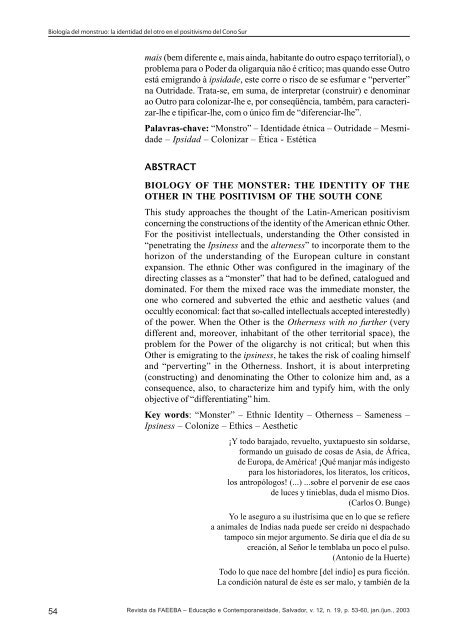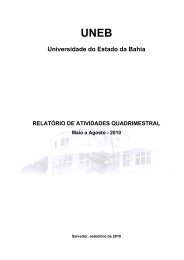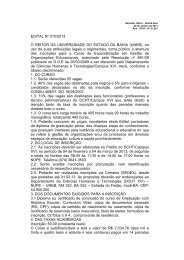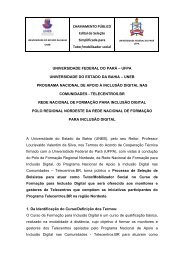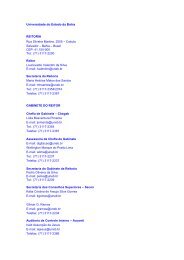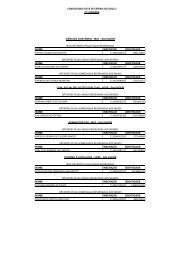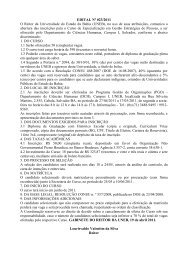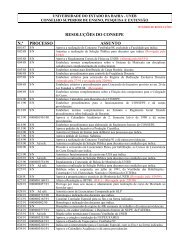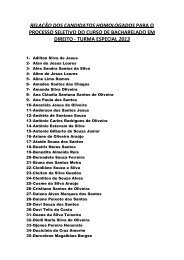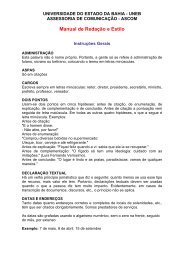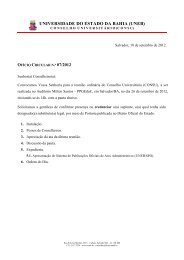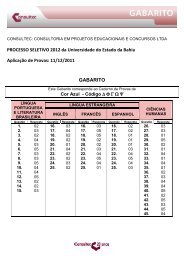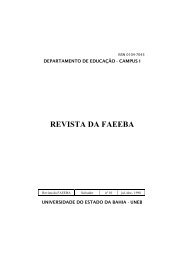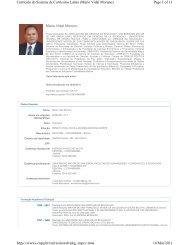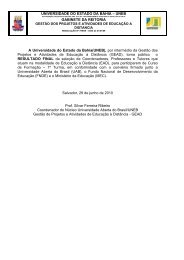Edição Nº 19 - Uneb
Edição Nº 19 - Uneb
Edição Nº 19 - Uneb
You also want an ePaper? Increase the reach of your titles
YUMPU automatically turns print PDFs into web optimized ePapers that Google loves.
Biología del monstruo: la identidad del otro en el positivismo del Cono Sur<br />
mais (bem diferente e, mais ainda, habitante do outro espaço territorial), o<br />
problema para o Poder da oligarquia não é crítico; mas quando esse Outro<br />
está emigrando à ipsidade, este corre o risco de se esfumar e “perverter”<br />
na Outridade. Trata-se, em suma, de interpretar (construir) e denominar<br />
ao Outro para colonizar-lhe e, por conseqüência, também, para caracterizar-lhe<br />
e tipificar-lhe, com o único fim de “diferenciar-lhe”.<br />
Palavras-chave: “Monstro” – Identidade étnica – Outridade – Mesmidade<br />
– Ipsidad – Colonizar – Ética - Estética<br />
ABSTRACT<br />
BIOLOGY OF THE MONSTER: THE IDENTITY OF THE<br />
OTHER IN THE POSITIVISM OF THE SOUTH CONE<br />
This study approaches the thought of the Latin-American positivism<br />
concerning the constructions of the identity of the American ethnic Other.<br />
For the positivist intellectuals, understanding the Other consisted in<br />
“penetrating the Ipsiness and the alterness” to incorporate them to the<br />
horizon of the understanding of the European culture in constant<br />
expansion. The ethnic Other was configured in the imaginary of the<br />
directing classes as a “monster” that had to be defined, catalogued and<br />
dominated. For them the mixed race was the immediate monster, the<br />
one who cornered and subverted the ethic and aesthetic values (and<br />
occultly economical: fact that so-called intellectuals accepted interestedly)<br />
of the power. When the Other is the Otherness with no further (very<br />
different and, moreover, inhabitant of the other territorial space), the<br />
problem for the Power of the oligarchy is not critical; but when this<br />
Other is emigrating to the ipsiness, he takes the risk of coaling himself<br />
and “perverting” in the Otherness. Inshort, it is about interpreting<br />
(constructing) and denominating the Other to colonize him and, as a<br />
consequence, also, to characterize him and typify him, with the only<br />
objective of “differentiating” him.<br />
Key words: “Monster” – Ethnic Identity – Otherness – Sameness –<br />
Ipsiness – Colonize – Ethics – Aesthetic<br />
¡Y todo barajado, revuelto, yuxtapuesto sin soldarse,<br />
formando un guisado de cosas de Asia, de África,<br />
de Europa, de América! ¡Qué manjar más indigesto<br />
para los historiadores, los literatos, los críticos,<br />
los antropólogos! (...) ...sobre el porvenir de ese caos<br />
de luces y tinieblas, duda el mismo Dios.<br />
(Carlos O. Bunge)<br />
Yo le aseguro a su ilustrísima que en lo que se refiere<br />
a animales de Indias nada puede ser creído ni despachado<br />
tampoco sin mejor argumento. Se diría que el día de su<br />
creación, al Señor le temblaba un poco el pulso.<br />
(Antonio de la Huerte)<br />
Todo lo que nace del hombre [del indio] es pura ficción.<br />
La condición natural de éste es ser malo, y también de la<br />
54 Revista da FAEEBA – Educação e Contemporaneidade, Salvador, v. 12, n. <strong>19</strong>, p. 53-60, jan./jun., 2003


